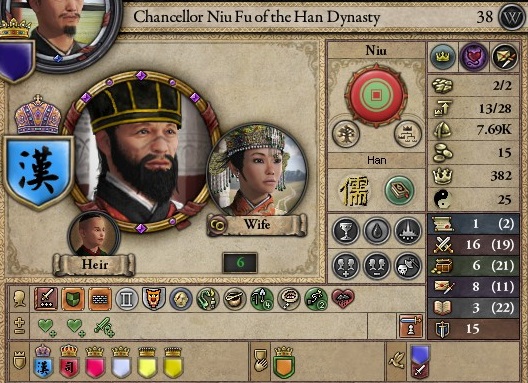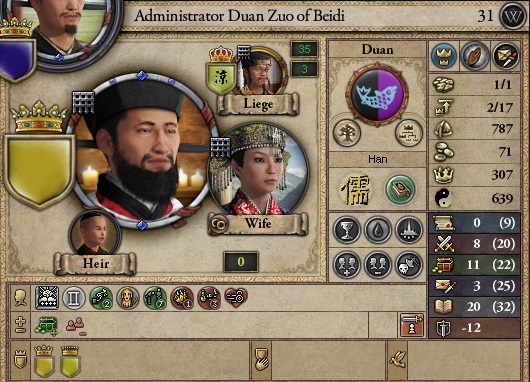195-196: THE VOYAGES OF PAN ZHENG, PART 1
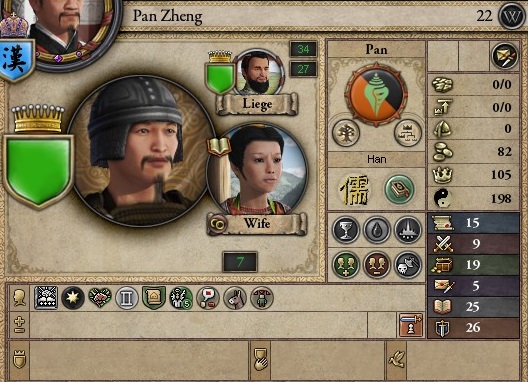
The decision to leave Yi Province should have been a difficult one for Pan Zheng, yet he made it without much care. After all, what did he have left in the province? His father had told him that he was no longer welcomed in the family. The Governor Liu Yan more or less banished him from court, ruining any hope for a future career. He had just buried his father-in-law. The powerful officials of the province did not like him for his honesty and integrity. And then there were those dirty barbarians running around destroying towns and cities. No, there was nothing holding him here anymore. His wife Fang Xia, while still grief stricken after the death of her father, could see that her husband was unhappy and agreed that it would be a good idea to leave. The couple thus prepared their belongings for their departure. While Pan Zheng wanted to leave immediately, the local officials of the city begged him to stay, at least until a new magistrate was appointed. He agreed to manage the city in the meantime. But once the replacement arrived, he barely waiting for the night before leaving the city, unwilling to stay any longer than necessary.
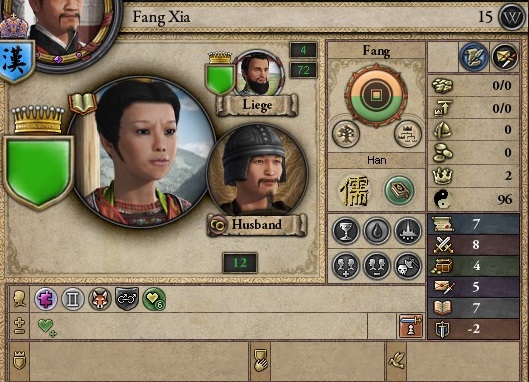
Pan Zheng’s original plan was to go north and enter imperial service in Luoyang. Surely the Imperial Court would have use of such a distinguished scholar as him. So their plan was simple. They would first make their way to the territories of the Celestial Masters. After all, this sect was a vassal of Liu Yan. Surely, they would respect nobles from their overlord’s domain. From there, they would go to Chang’an, the former capital of Western Han. If possible, he would start getting in contact with local officials, who might be able to find him a job in Luoyang, where they would then settle and where he could prosper at court. That plan quickly fell apart at the first step, as Pan Zheng was unaware of the war currently going on. Half a dozen peoples were in the process of attacking the Celestial Masters when Pan Zheng arrived, unwittingly entering a warzone.
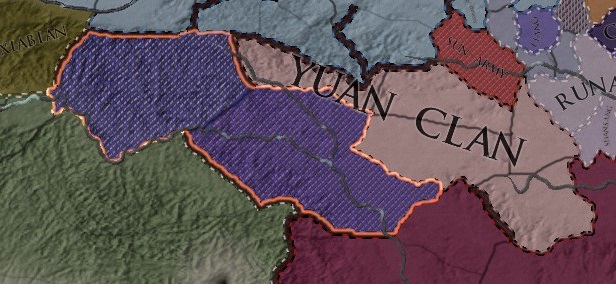
He went around doing his best to evade the fighting and find a city, but when he finally found one it was under siege by the forces of the warlord Yuan Shu. Still, he was welcomed in the camp and was brought to the commander, a scholar named Feng Zian. After a few minutes of talking, Feng Zian took a liking to the young scholar. He finally had someone to talk to about the ancient classics and the words of Confucius. He offered Pan Zheng and his wife a place as his guests. Having nowhere else to go, Pan Zheng agree to stay around, offering his services to Feng Zian, and by association to Yuan Shu. While he did know Yuan Shu by name, he knew little of the warlord other that he was of a prominent family, which seemed enough for him at the time. Pan Zheng helped keep the tabs at camp and did some of the administrative duties. Feng Zian was so satisfied with him that in a letter to Yuan Shu he wrote:
“I have found a man of great worth for your cause. My lord will surely find an appropriate position for him once the campaign is over. I would despair to see such talent pass through your fingers.”
That good opinion quickly changed, however, as jealousy and ego began to assert themselves. As always, Pan Zheng never hid his thoughts, even when it would have been better to do so. If Feng Zian had a good first impression of the young scholar, Pan Zheng quickly grew disappointed with his host. He continuously pointed out the mistakes in Feng Zian reasoning during their debates, and was not shy to criticize the opinions and morals of his host. He even told his wife at one point “General Feng should stick to the affairs of war, as he always finds himself outclassed in the affairs of the mind.” Arrogant as he was, Feng Zian immediately took offense to Pan Zheng stubborn honesty. He felt humiliated by the superior knowledge of the younger man. Five weeks after his arrival, Pan Zheng was publicly chastised by Feng Zian, who mocked him and insulted him in full view of everyone. But refusing to apologize, Pan Zheng was told the following day that he would be escorted to Yuan Shu’s court, mostly as a way to get him out of Feng Zian’s sight.
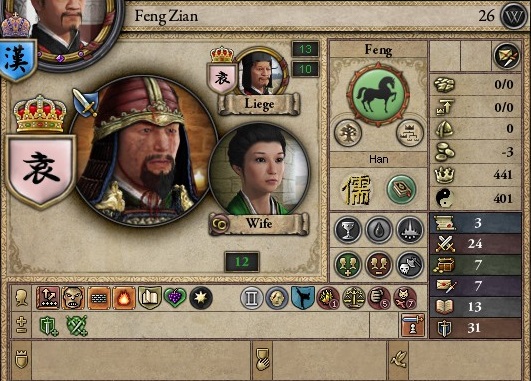
Yuan Shu had been curious about this young scholar ever since Feng Zian wrote to him about it. He personally considered all those self-righteous Confucian scholars more trouble than they were worth, always trying to prove how good they were. But any self-serving ruler needed to foster a good court, and that included scholars. Hearing the praises from Feng Zian (before his letters turned to criticism), Yuan Shu was all too willing to have a young man with such potential at court. When Pan Zheng finally arrived, Yuan Shu immediately started to flatter him with praises and gifts. The self-centered scholar was quickly charmed by Yuan Shu, who used the right words to convince him that he should stay. So Pan Zheng offered his services to the warlord, who in exchange began to sponsor his work. Pan Zheng and his wife were happy to have found such a nice place to stay. When he wasn’t doing his new official duties, Pan Zheng worked on finishing his own work, which he had been writing for a few years now. The Nánfāng Yěshòu (南方野獸, or Southern Beasts) was a treaty on the various southern barbarians. While clearly biased thanks to Pan Zheng’s views, the work made him a famous scholar in the south.
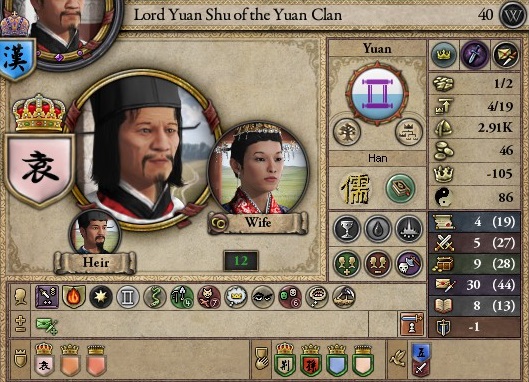
Other than sponsoring his work and giving him small duties at court, Yuan Shu also appointed Pan Zheng as the tutor to his 15 years old son and heir Yuan Yao. Instead of seeing it as a great reward, Pan Zheng saw it as a needless distraction from his work. Even if he lacked gratitude for the assignment, he still worked as hard as he could in his new duty. Just as had happened previously, his rapid rise at court made many of the sycophants and high-ranking officials jealous. They had been sucking up to Yuan Shu for years, yet now this newcomer got the job of educating the heir? In their eyes, this was unfair and unacceptable. The issue was that he wasn’t that happy with these new duties either. Yuan Yao was unambitious and satisfied with a simple life at court. A peacock focusing more on his dress than his future, Yuan Yao was a clear disappointment.
He was certainly a disappointment to Pan Zheng. While Yuan Yao tried his best to study and to fulfil the expectations of his tutor, he lacked the talent or the ambition to push himself forward. Pan Zheng didn’t care much that the young man tried hard or dressed well. He was a failure in his eyes, something Pan Zheng barely hid from his student. He came here to work and write, not to teach incompetent teenagers. In private, he openly despaired at the young man, telling his wife at one point that “I cannot fathom how such a failure is allowed to be the heir of such an important family.”
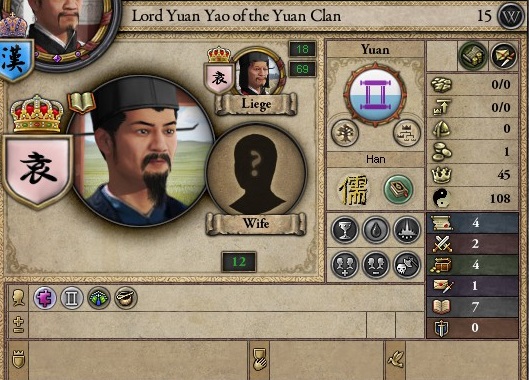
Either because of the court full of sycophants or the incapable Yuan Yao, Pan Zheng was growing more and more frustrated with his current situation. He also started to lose respect for Yuan Shu. While his lord was usually able to sweet talk him into compliance, it didn’t take long for Pan Zheng to notice how Yuan Shu was at managing the affairs of state. He clearly had more competent subordinates, but stalled their career and refused them the opportunity to access power, rewarding loyalty over talent. The scholar was also disgusted when Yuan Shu organized celebrations following the “victory” against the Celestial Masters. From his understanding, the war had been won by a subordinate of Chen Wen of Yang Province, yet Yuan Shu acted as if Feng Zian was the hero of the day.
By late January 196, Pan Zheng was sick of Yuan Shu’s court and decided to leave. His wife tried to convince him not to, as she was far happier here than he was. Fang Xia didn’t want to go running around China while they had a chance to build a life for themselves right here. But as always, Pan Zheng didn’t listen and thought of himself first and foremost. One day, he came forward and declared his intention to leave. When Yuan Shu tried to persuade him to stay, Pan Zheng coldly replied:
“I do not wish to wait for the sycophants to ruin this before your son could ever fail your legacy. And the simple fact that neither of these issues worry you make it clear that you too, my lord, have failed yourself. I do not believe that my place is here, because in all truth, this court does not deserve me. And neither do you.”
Feng Zian, who had just returned from the campaign, was so angry with these insulting words that he wanted to beat the scholar with his fists. He actually managed to land a first blow, to Pan Zheng’s shock, before he was restrained and ordered to stop. Yuan Shu told him to let the scholar go. After all, he was not holding them hostage or anything. No, in his magnanimity, he would let them leave, even offering them an escort. Pan Zheng refused, mostly because he didn’t want to owe Yuan Shu anything. While they were allowed to leave court, Yuan Shu had no plan to let Pan Zheng and his wife go free for insulting him. Pan Zheng needed to pay for refusing to serve him. So he paid bandits to go attack and kill the couple as they left his territories. That way it couldn’t be traced back to him. This idea worked so well that no one ever heard of this, because the bandits took the coins and left without fulfilling their job. Annoyed, but unwilling to turn this into a humiliating scandal, Yuan Shu dropped his whole scheme and went back to his own affairs, allowing Pan Zheng and Fang Xia to go free.
Now Pan Zheng needed to find a new place to go. At first, he entertained the idea of going south to serve Chen Wen, the Inspector of Yang Province. He was by far the biggest player in the south, and he was renowned for treating his subordinates well. However, at the time his capital was occupied by the forces of Xu, and the issue of the civil war was yet to be decided. Pan Zheng didn’t want to find himself in the middle of a war again, and so instead turned his eyes toward the former Yu Province. He heard that the administrator of Chen Commandery, Xiao Ru, was seeking competent men to come serve in his court, so he began to make his way there. But another of the local warlord, Administrator Chen Yi of Lu, became aware of this wandering scholar. Unwilling to let him fall into a rival’s hands, Chen Yi sent messengers to Pan Zheng inviting him to his court instead. When they saw his hesitation, the messengers were quick to point the accusations of murder levied against Xiao Ru, which disgusted Pan Zheng and convinced him to follow them back to Lu Commandery.
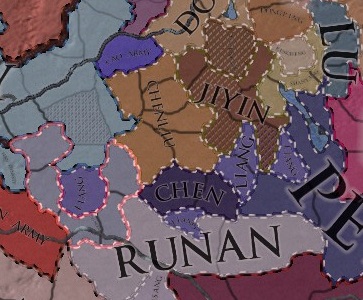
Ever since the collapse of the province, Chen Yi had suffered from a shortage of competent subordinates, which made him even more motivated to invite Pan Zheng to his domain. Some of his current advisors were a bit worried about this newcomer, but Chen Yi brushed them off. When the scholar finally arrived, he received a great welcome from the whole court (since Chen Yi had everyone who opposed the decision arrested). Unaware of what had happened, Pan Zheng thanked he administrator for his warm welcome, although he expressed the believe that it was too much. “If I am deserving of a welcome worthy of the Son of Heaven, then I can only fear what kind of men advised you so far.” To which Chen Yi answered: “Do they matter? No! Not now that you are here!”
Unlike Yuan Shu, Chen Yi was a firm believer in the teachings of Confucius, although he often failed to uphold them in the face of politics and intrigues. He thus hoped that Pan Zheng could keep him on the right path. Such a stubborn scholar would be sure to advise him on what was right, no matter how little he wanted to hear it. First appointed advisor, Pan Zheng quickly found himself propelled at the top of the commandery, acting as Chen Yi’s closest subordinate and helping him administrate his territories. In many ways, his new functions were similar to those of Xu Shao in Chen Commandery a year before. The issue was that the dynamic between the lord and the advisor was nowhere near as functional. As much as he wanted to present himself as a wise man, Chen Yi was more knowledgeable in military affairs than anything else, leaving him with a short temper and a desire to be obeyed. Pan Zheng’s advices often fell on deaf ears. This annoyed Pan Zheng, who became more stubborn and repetitive in his advices, which in turned annoyed Chen Yi.
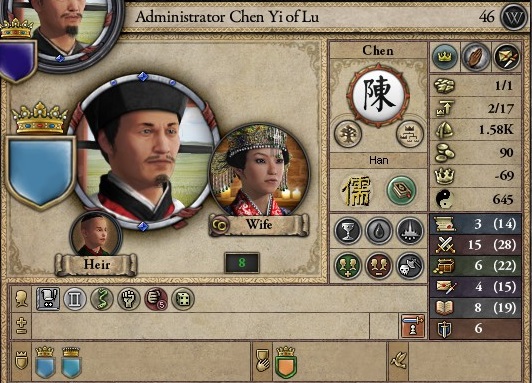
After two months in his new duties, it was becoming clear to Pan Zheng that this wasn’t working out. What was the point of advising a lord if you were ignored most of the time? While Chen Yi still held delusions that they had a functioning relationship, Pan Zheng was starting to wonder if he shouldn’t resign and retire to focus on his writing. He was still too stubborn to admit that he had made a mistake by coming to Lu Commandery, however. In May 196, Pan Zheng was presented with an opportunity for some change. Chen Yi was starting to take an aggressive stance toward his neighboring Taishan Commandery, still governed by the scholar Ying Shao. In order to pressure them, Chen Yi decided to send an ambassy led by Pan Zheng. He hoped that they would then submit to his authority without a fight.
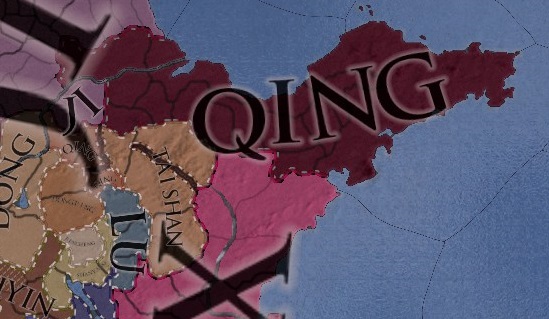
When Pan Zheng left, he insisted that his wife accompanied him, as he didn’t want Chen Yi to somehow use her against him. She agreed to come, happy that her husband cared about her for once. They didn’t waste time and arrived quickly to the court of Ying Shao. The famous scholar had managed to learn of Pan Zheng’s writings and was impressed with his scholarly work. Still, as much as he wanted to speak with the newcomer, he was also suspicious of him. He had been a bit paranoid when meeting new people ever since the murder of Zhuge Gui. Having previously given his trust to Xiao Ru and deeply regretted it, he was now weary to do so again. For his part, Pan Zheng was highly impressed by Ying Shao and his administration. The man was known as one of the great scholars of his time, someone Pan Zheng could openly admit that he admired. For the first time, he found someone he genuinely wanted to serve.
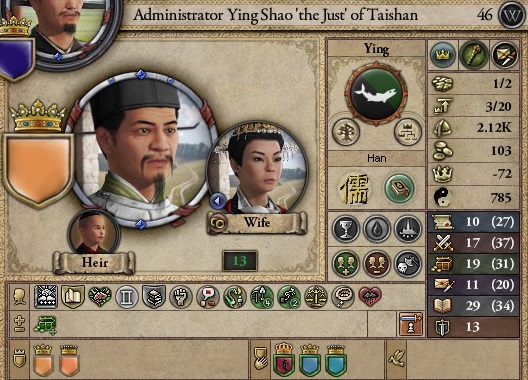
Instead of doing what Chen Yi asked him to do, Pan Zheng quicky decided he much preferred to join Ying Shao’s court. No matter what the other messengers told him, how they tried to remind him of his duties to Chen Yi, Pan Zheng refused. He instead sent the rest of the delegation packing and offered his services to Ying Shao. The older scholar was at first hesitant, but at the very least offered hospitality to him and his wife. As for Chen Yi, he was taken aback by the defection, which made him seriously reconsider any plan to go against Ying Shao for the foreseeable future. If his best man had easily defected like that, what guaranteed that his officers wouldn’t betray him in the same way? So he backed off, and while he cursed Pan Zheng betrayal’s he could do little about it.
Pan Zheng now found himself in Ying Shao’s court, the third court he had served since the start of the year. Thankfully for his wife, who was sick of having to leave each time her husband grew frustrated with his duties, Pan Zheng would come to enjoy his life here. While Ying Shao was hesitant to fully trust this newcomer, and would never give him big official duties, he never the less welcomed the fellow scholar and allowed him to live at court. This was all right with Pan Zheng, who could focus on his personal writings without being bothered. Respect quickly grew up between the two scholars, and the early suspicions of Ying Shao disappeared, at least enough that Pan Zheng was given some small duties at court, like keeping the library organized or going on occasional trips to the local magistrates.
It was one of these trips in August 196 that pushed Pan Zheng to visit Fei County. The county was still administrated by Zhuge Jin, who had been appointed following the murder of his father Zhuge Gui. Zhuge Jin proved a great host to the scholar, who quickly grew close to the Zhuge family. He was impressed by the work Zhuge Jin had done as a magistrate, excelling in his duties. He would even send a report to Ying Shao, recommending Zhuge Jin for a higher position. Ying Shao would actually promote Zhuge Jin to a position at his court a few weeks later, although the role Pan Zheng’s recommendation played in this is debatable. What isn’t debatable is Xiao Ru’s role in Zhuge Gui’s death, something that was explained in length to Pan Zheng once he mentioned that he almost went to work for the murderer. Once he realized what kind of man was Xiao Ru (at least from the Zhuge brothers’ perspective), Pan Zheng declared “What a vile creature he is, and what a fool I was to consider joining him!”
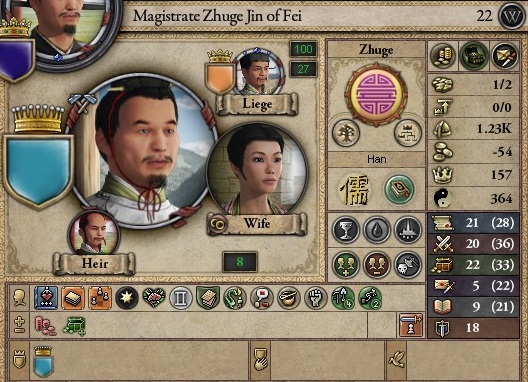
But of all the Zhuge family, Pan Zheng found himself spending the most time with Zhuge Liang, the middle sibling. The murder of his father had a deep impact on Zhuge Liang’s psyche, and his desire to get revenge upon Xiao Ru had drove him to become unstable. This in turn drove a wedge between Zhuge Liang and his older brother Zhuge Jin, who did not appreciate his brother acting like an insane man at times. Pan Zheng was thankfully able to get pas that and enjoy deep discussions with him. The two were comrades and hung out together regularly. With something of a friend with who to talk of scholarly affairs, Pan Zheng could now say he had found a home. By the end of 196, he still lived in Taishan Commandery, with no desire to leave anytime soon.
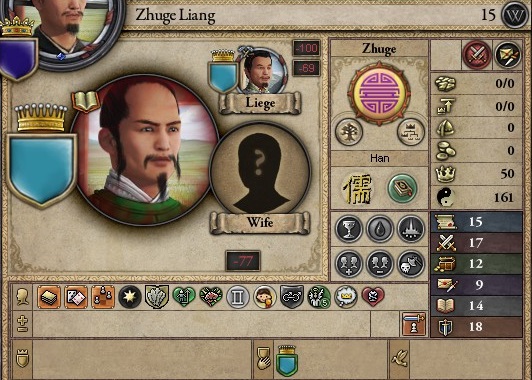
___________________________________________
PS: My current plan for the next chapters
- Gongsun Zan's war to vassalize Jibei (195-196)
- Yuan Shu war with the barbarians (196-197)
- The first months of Yang Province's independence (196-197)
- Yao Shuren consolidates his power + Han Sui's war with the Qianghaixi Horde (196-197)
- Lü Bu's war to invade You Province (196-197)
- Liu Siyuan's war with Li Tong (197)
- Xiao Ru's war for Chengguo (197)
- A chapter covering the first two years of Niu Fu's time as Chancellor (196-198)
Last edited:
- 3


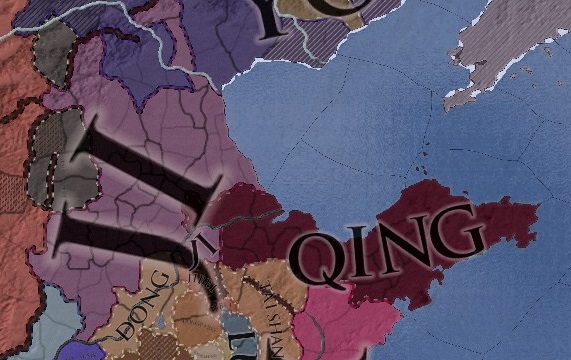
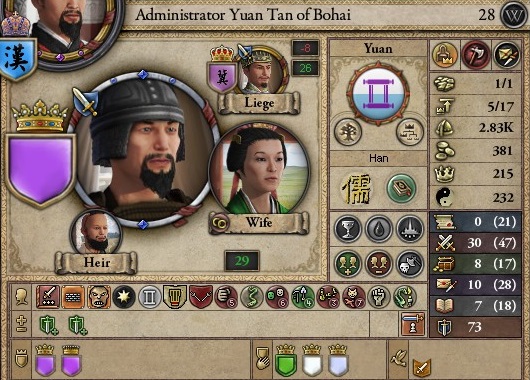
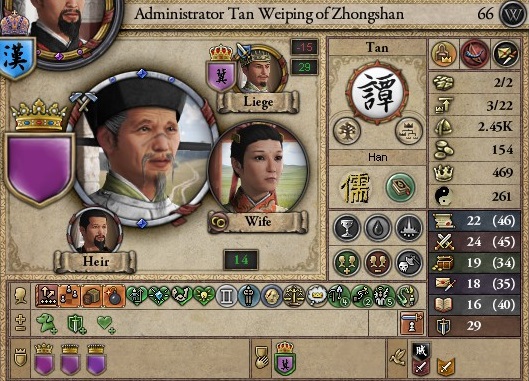
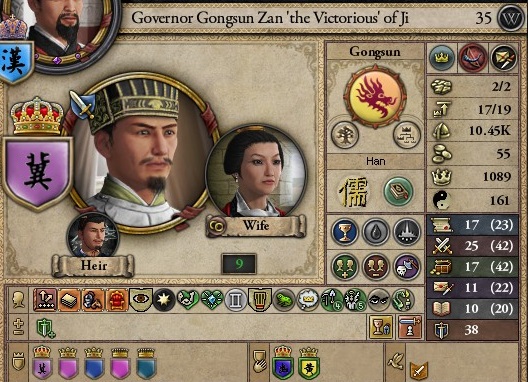
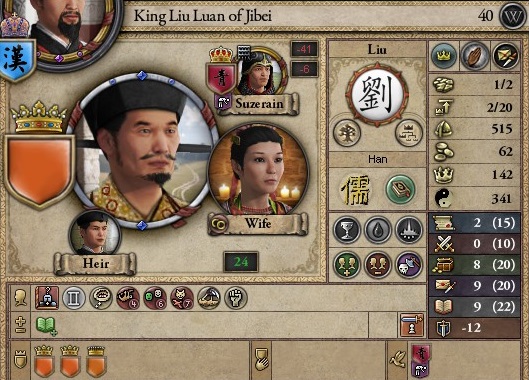
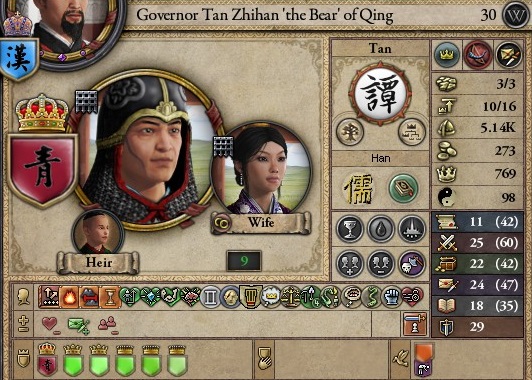
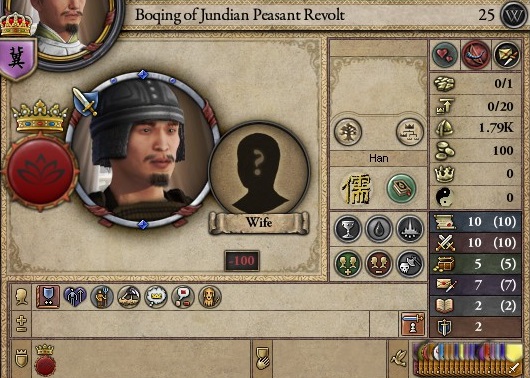
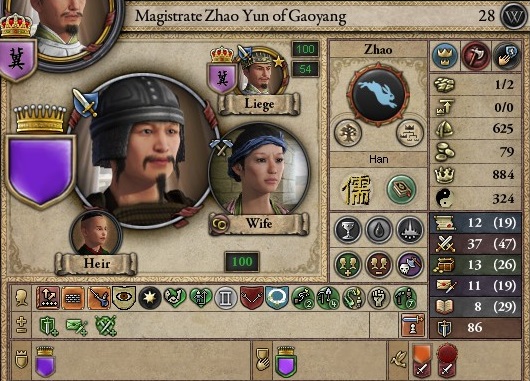
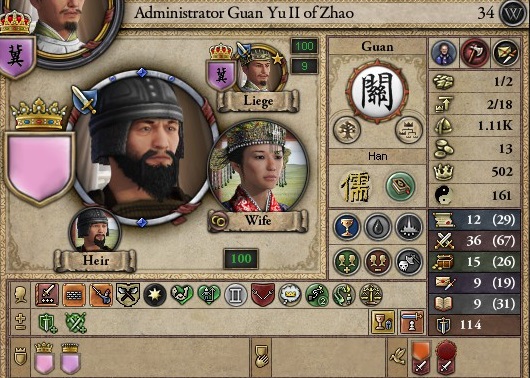

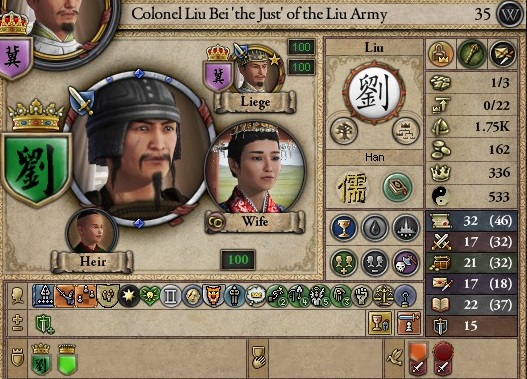
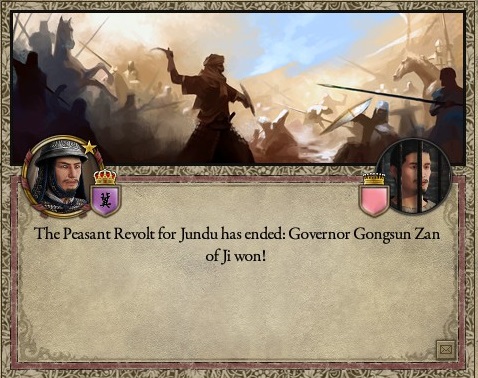
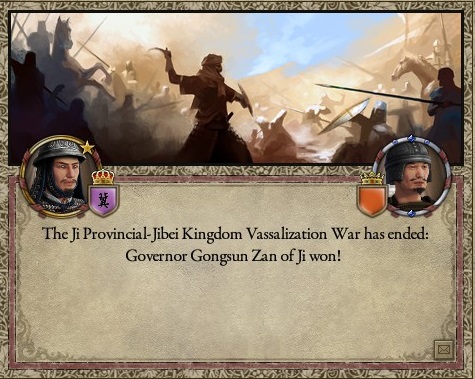

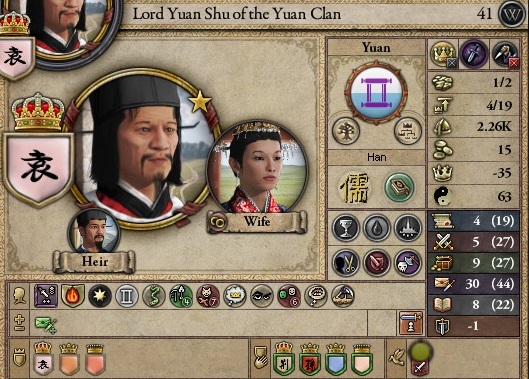
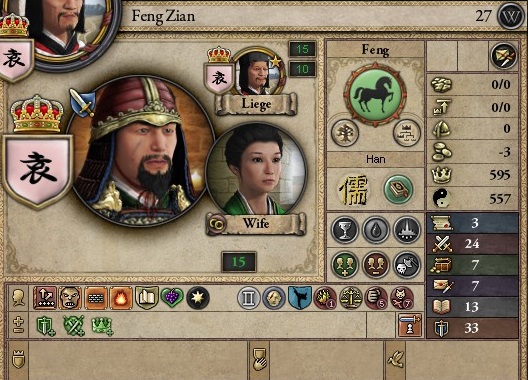
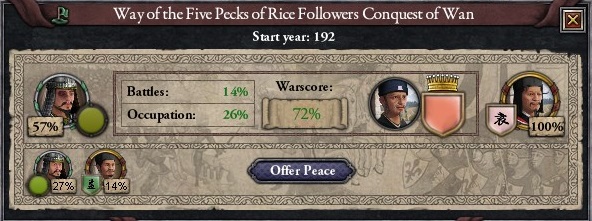
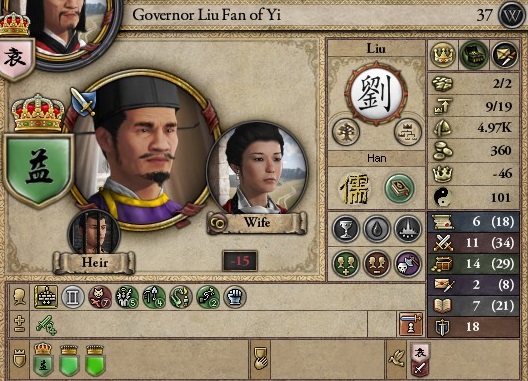
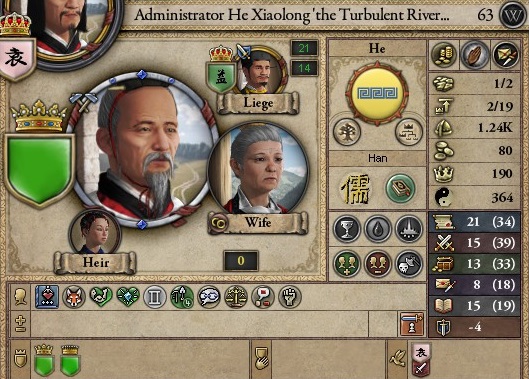
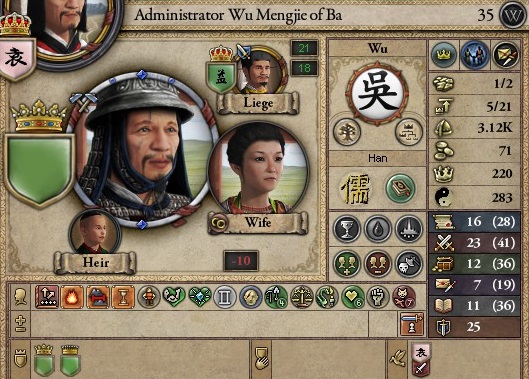
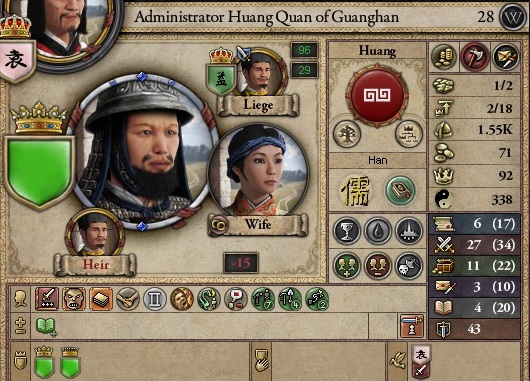
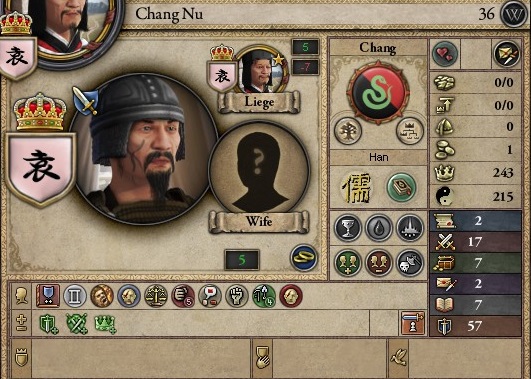
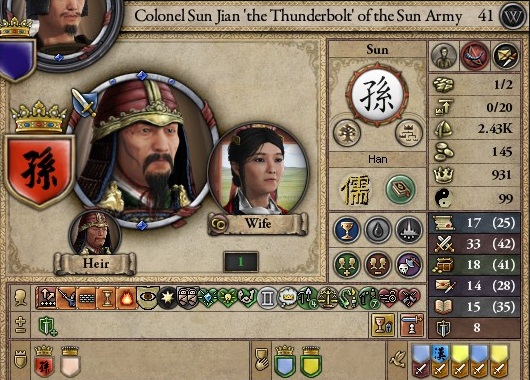

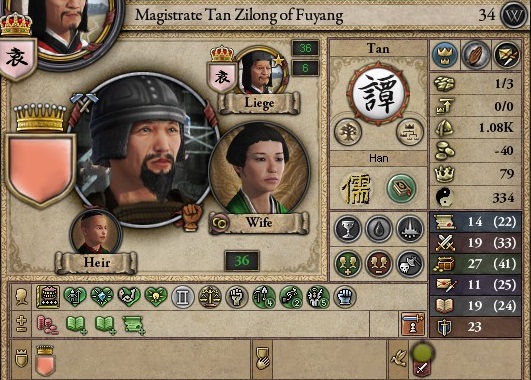
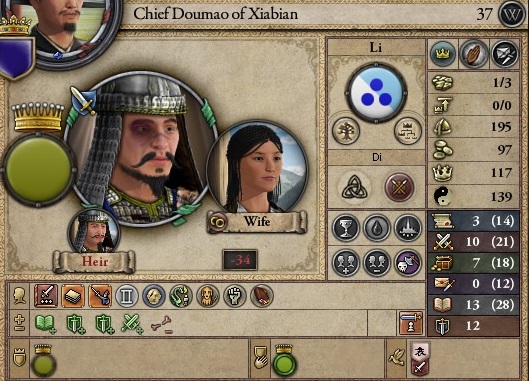
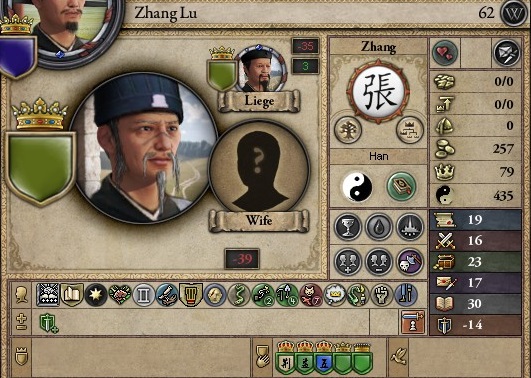
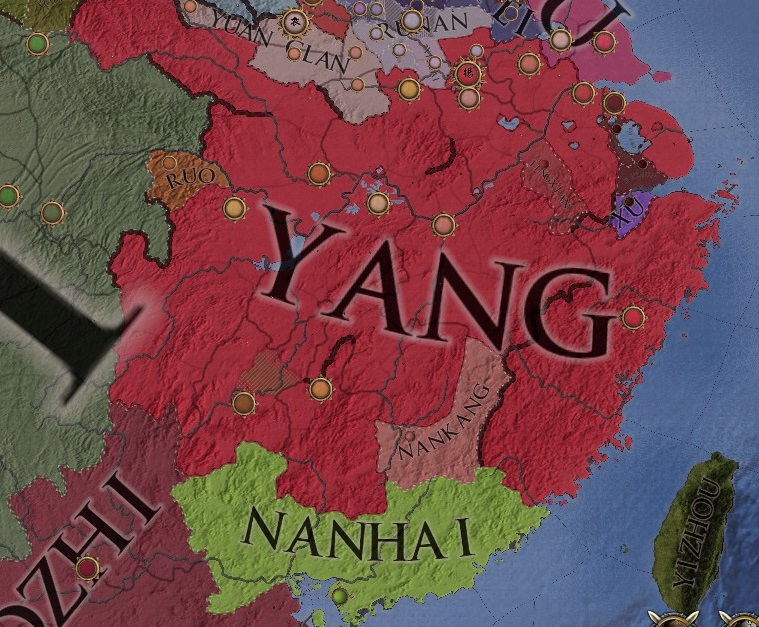
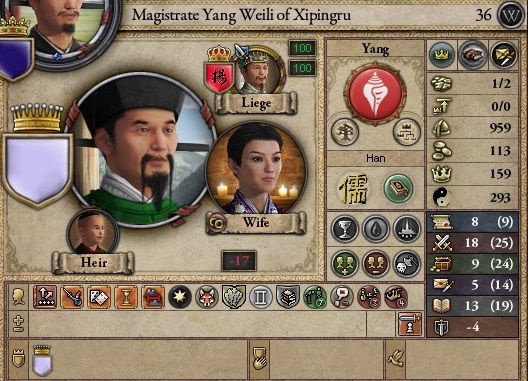
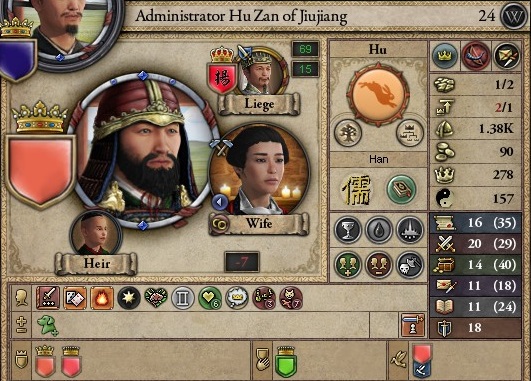
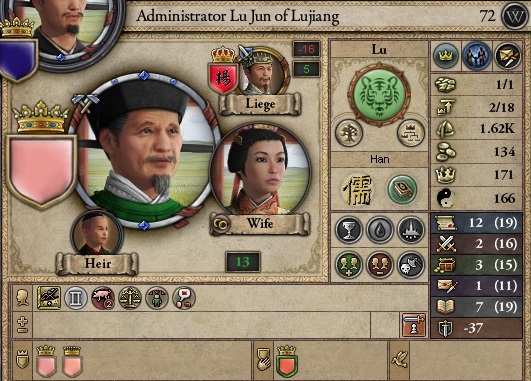
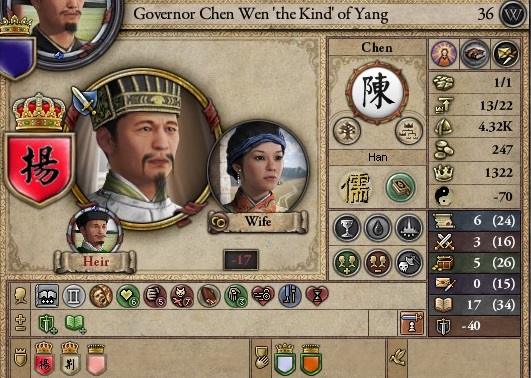
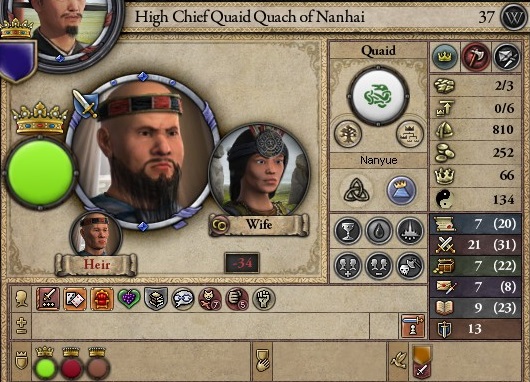
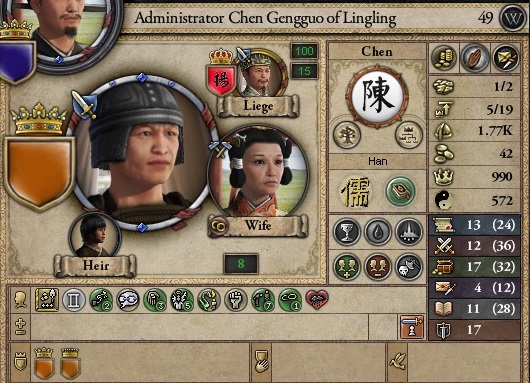
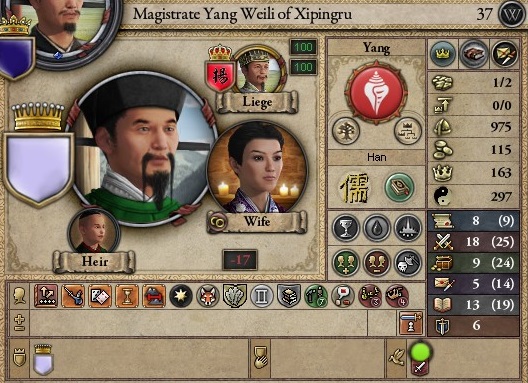
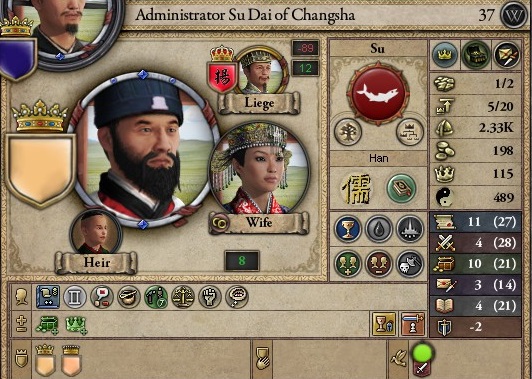
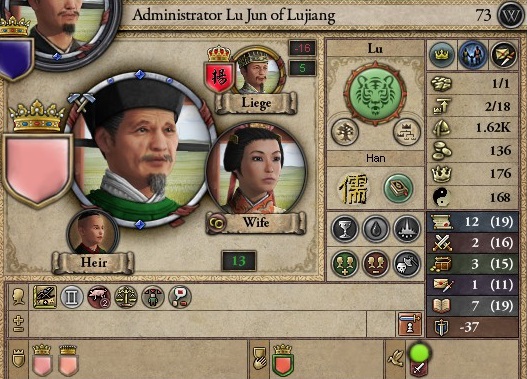
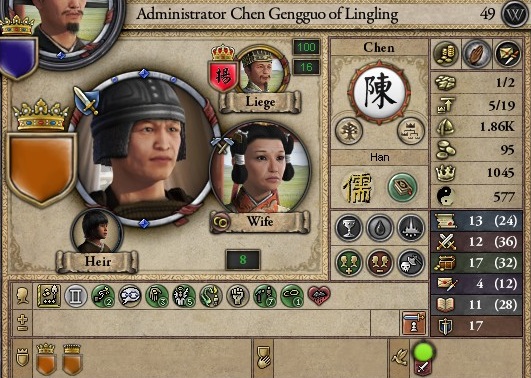
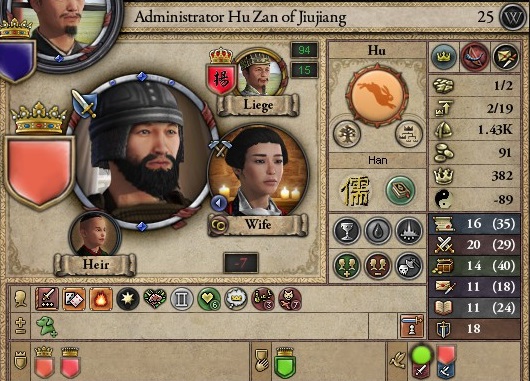
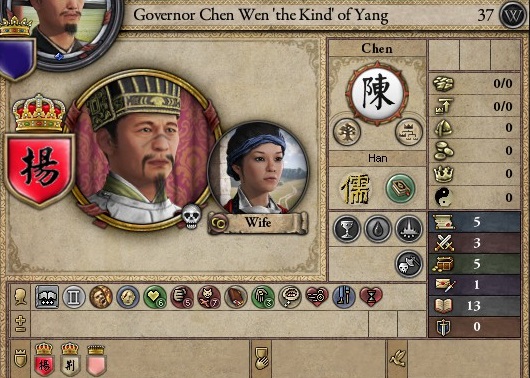

















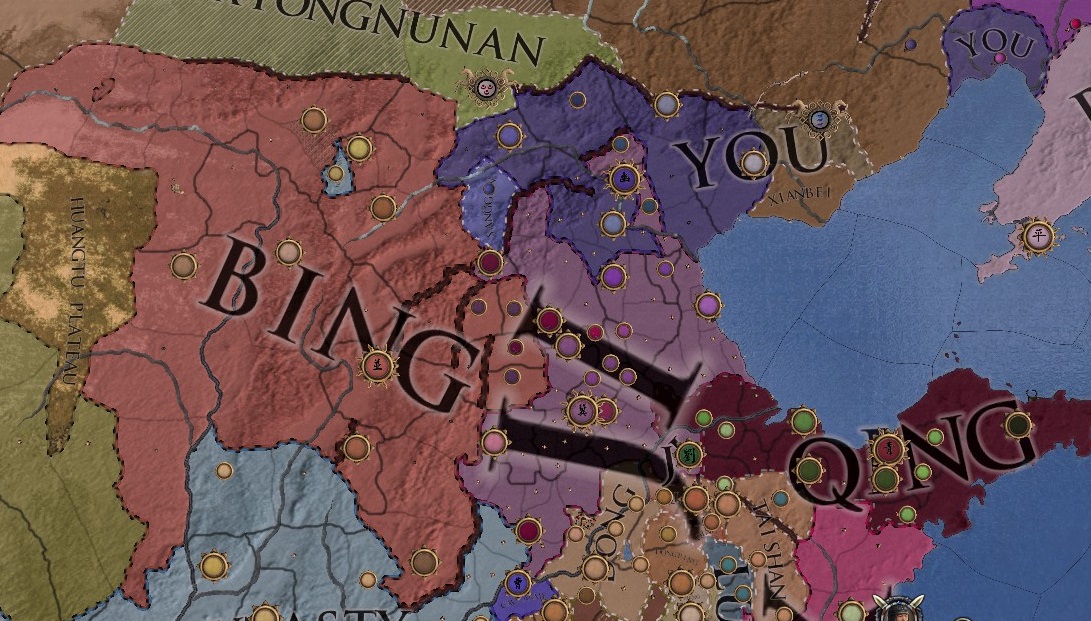








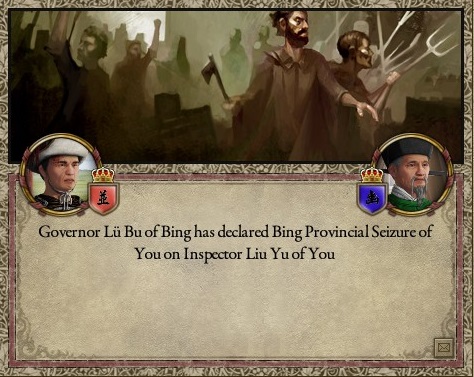
























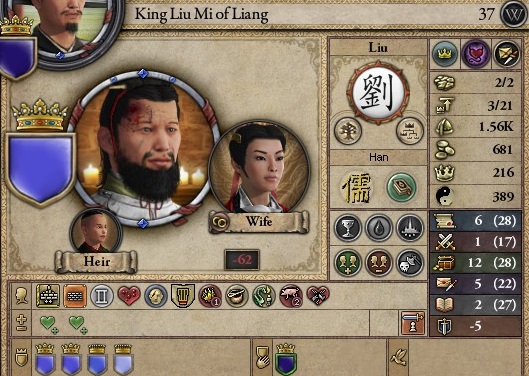






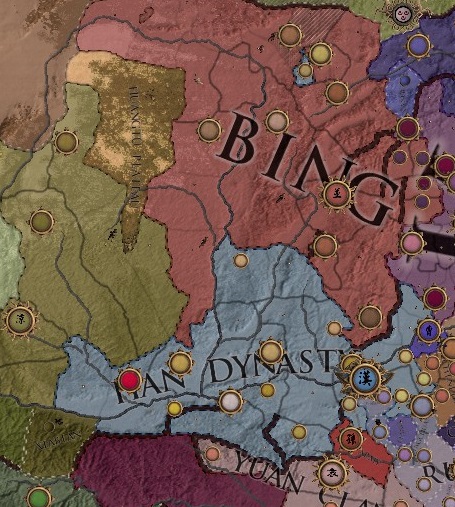
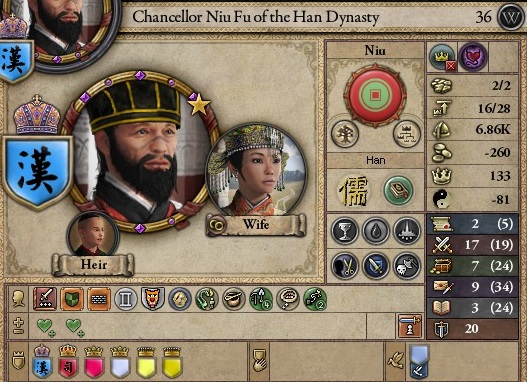
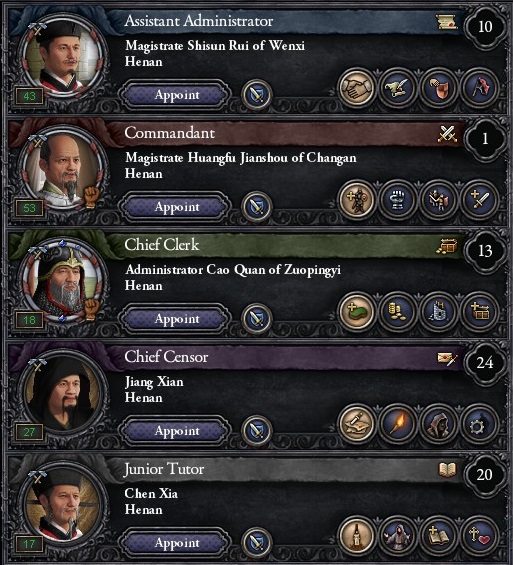
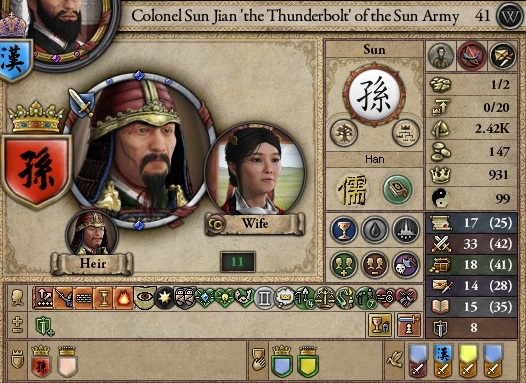
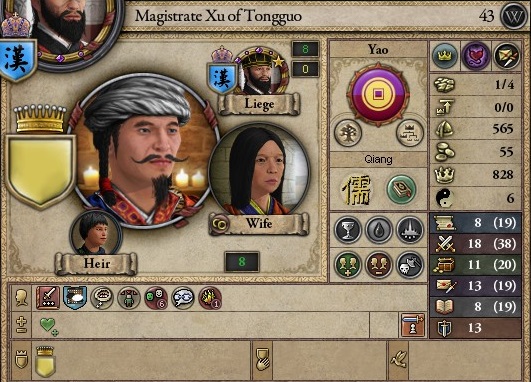
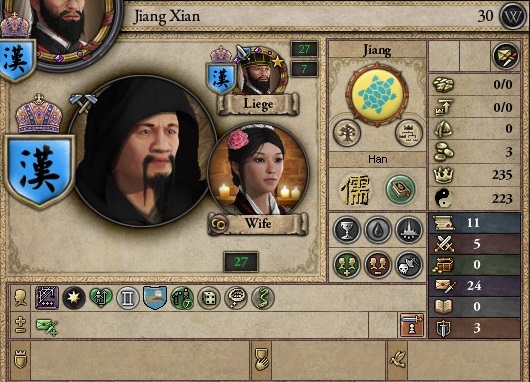
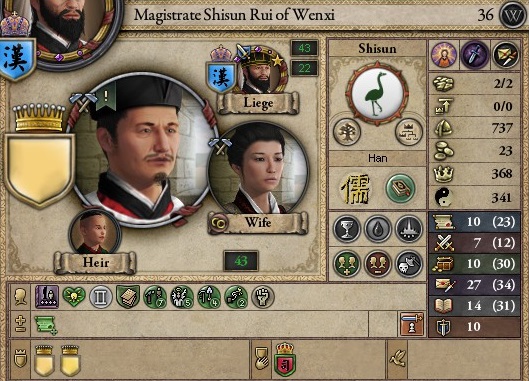
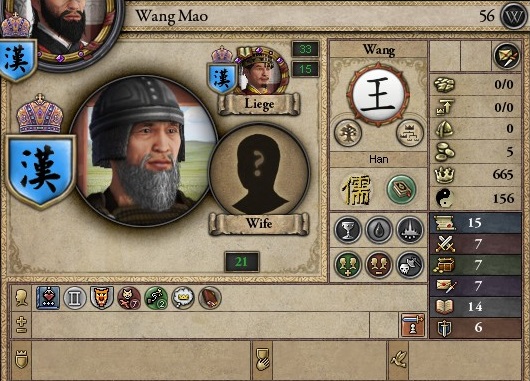
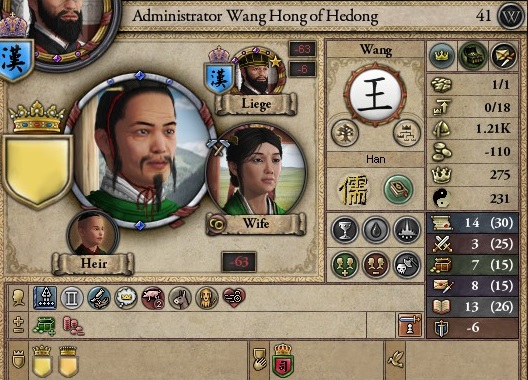
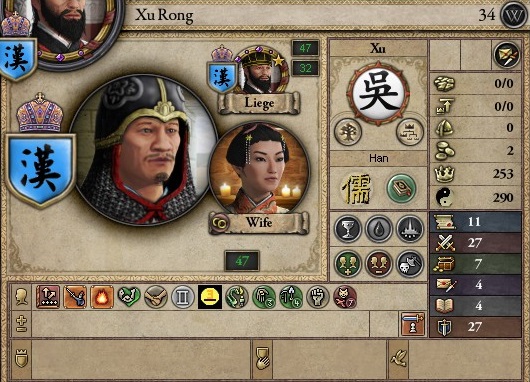
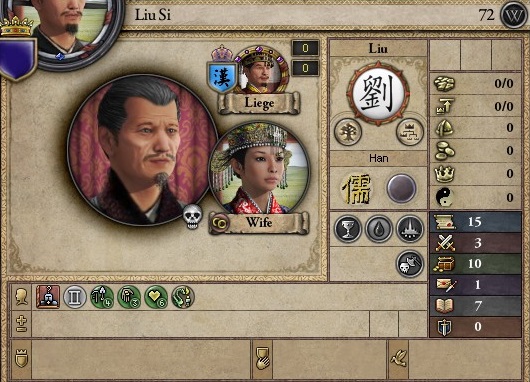
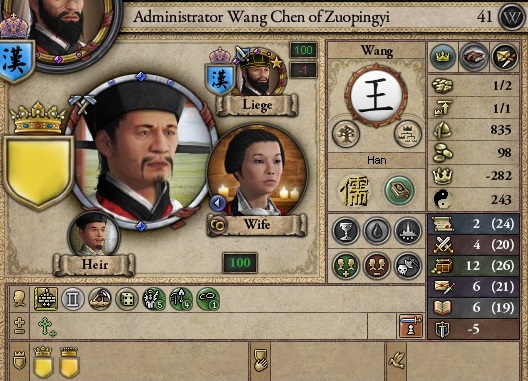
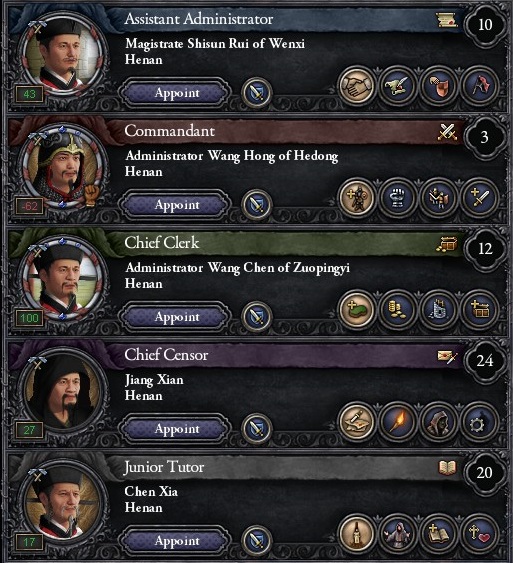
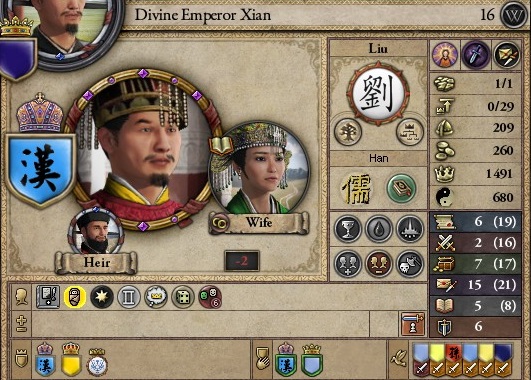
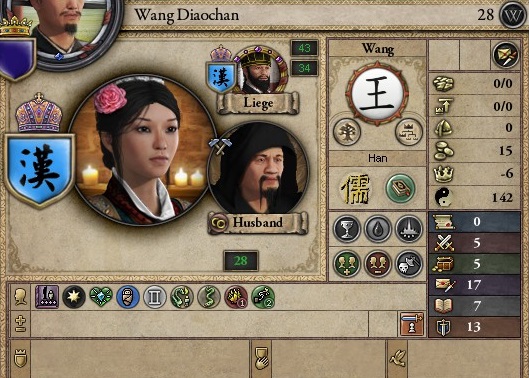

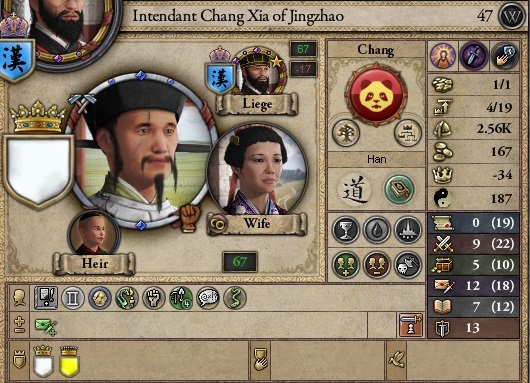
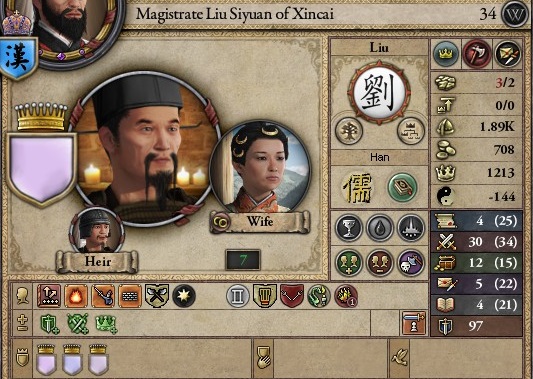
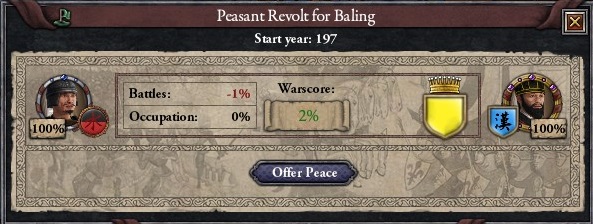


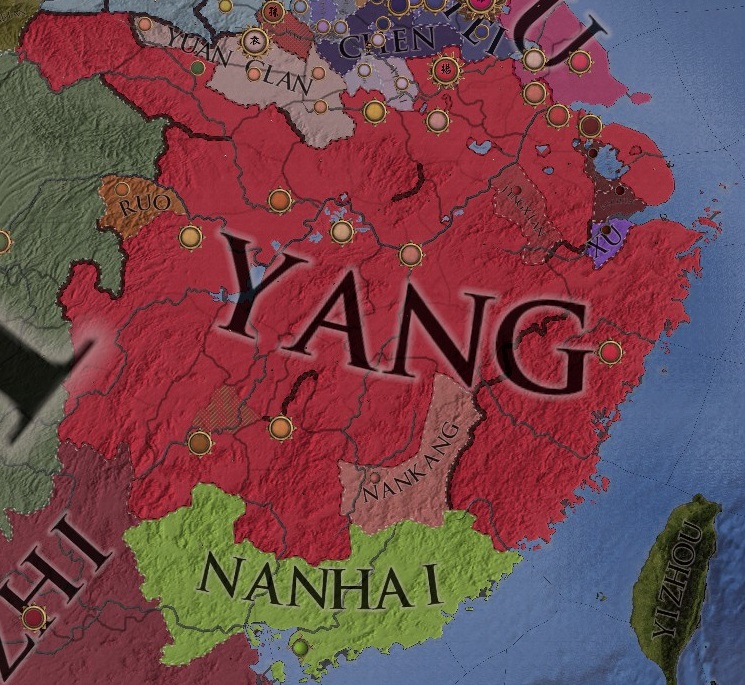
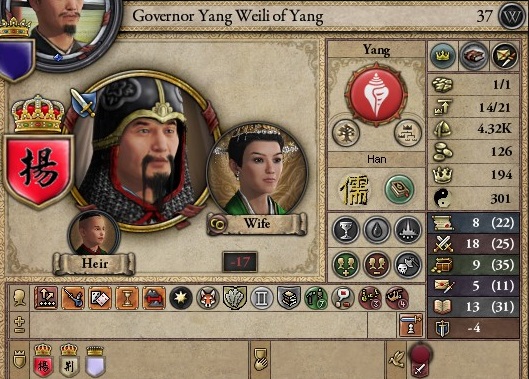
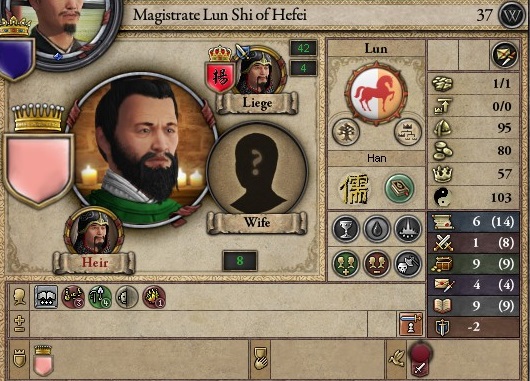
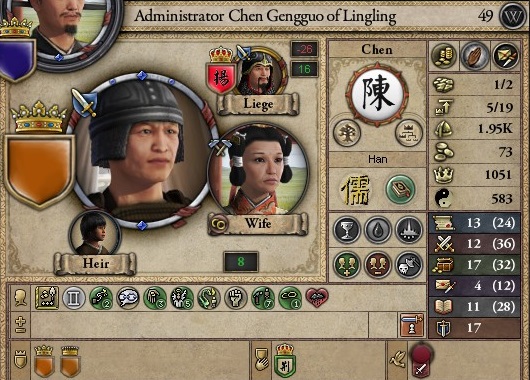
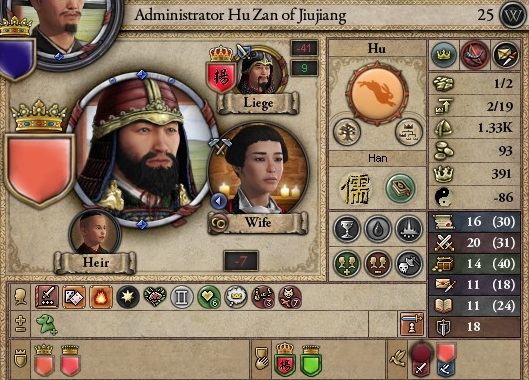
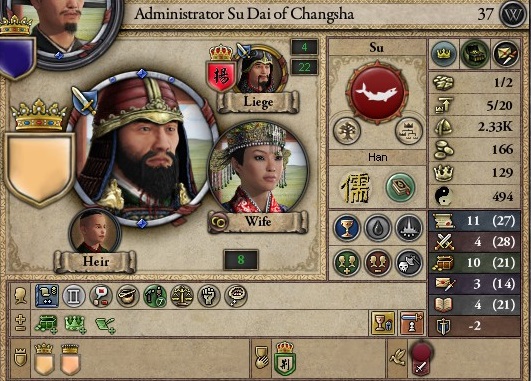
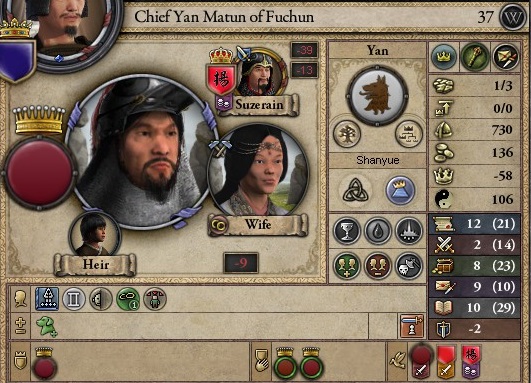
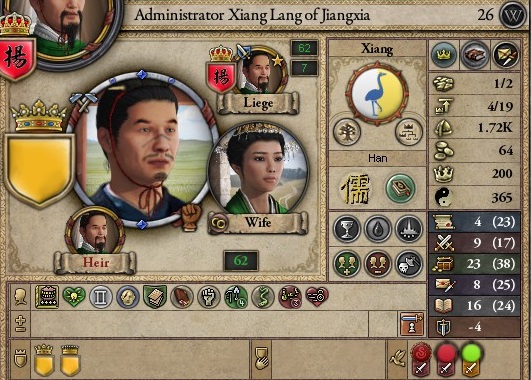
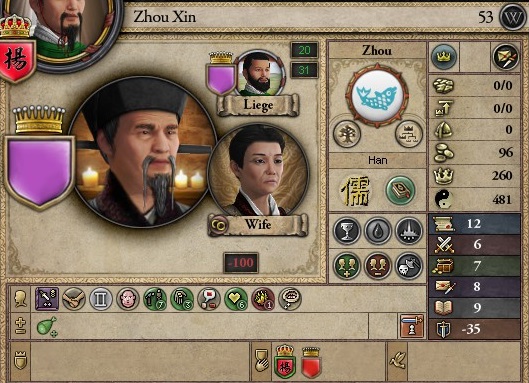
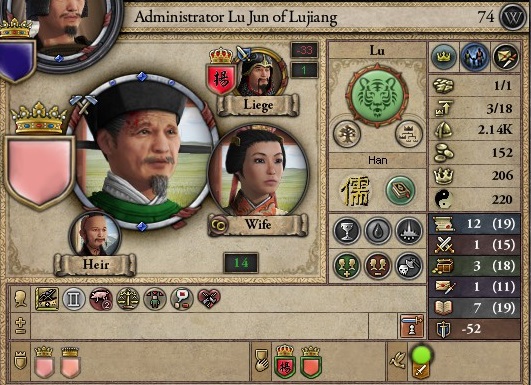
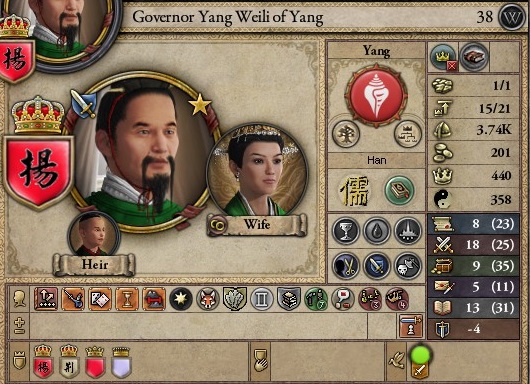
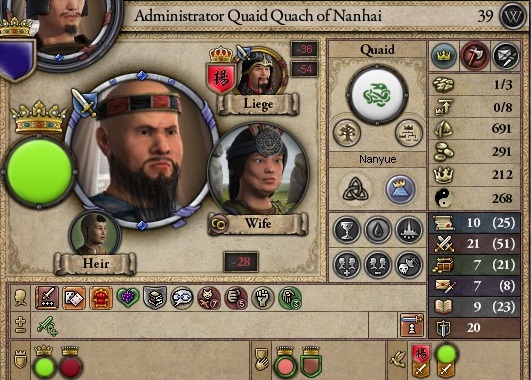
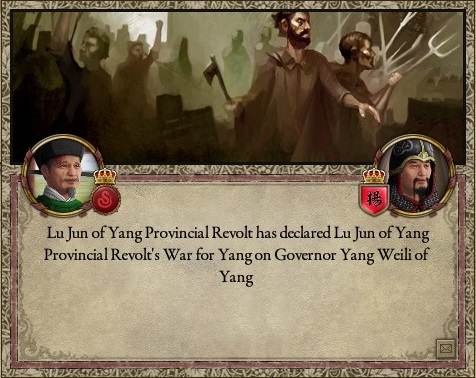
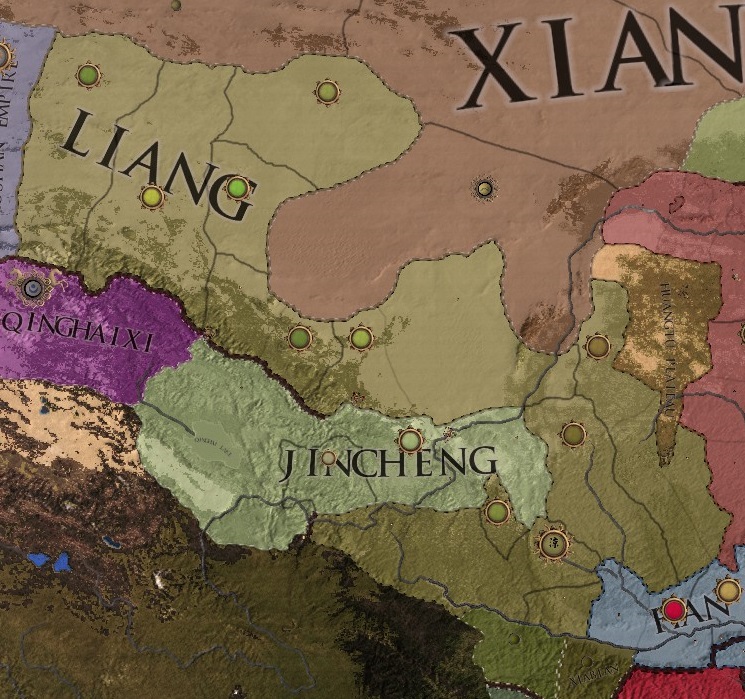
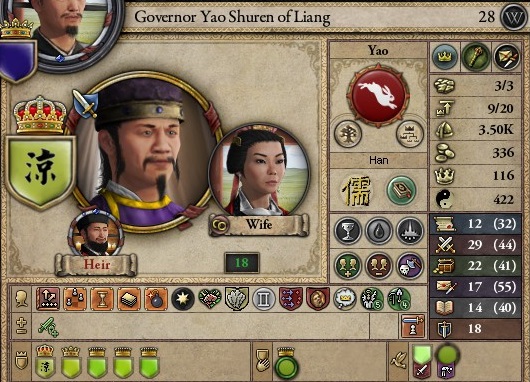
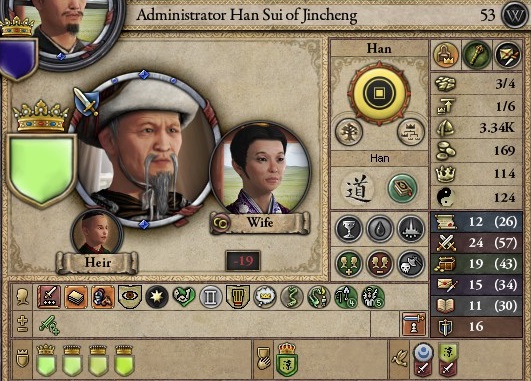
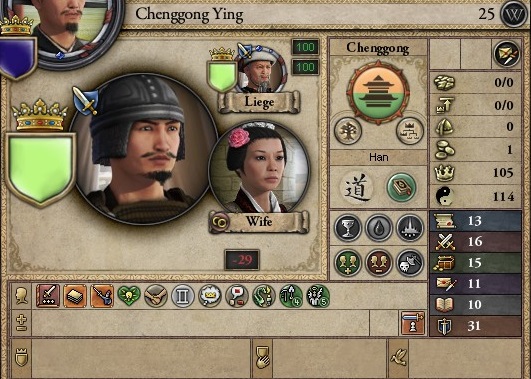
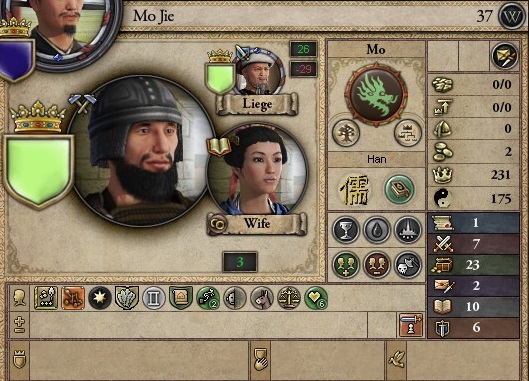
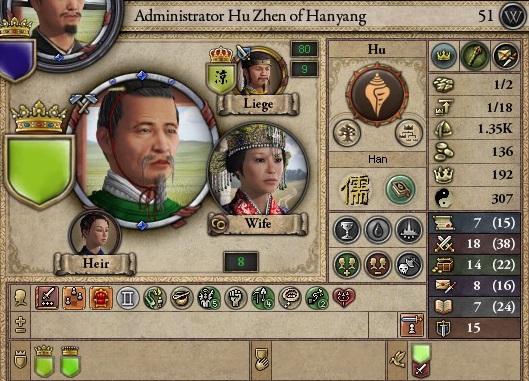
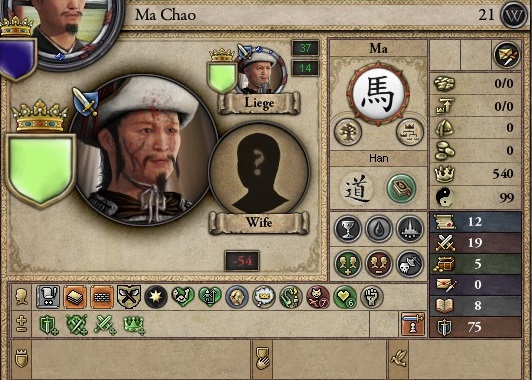

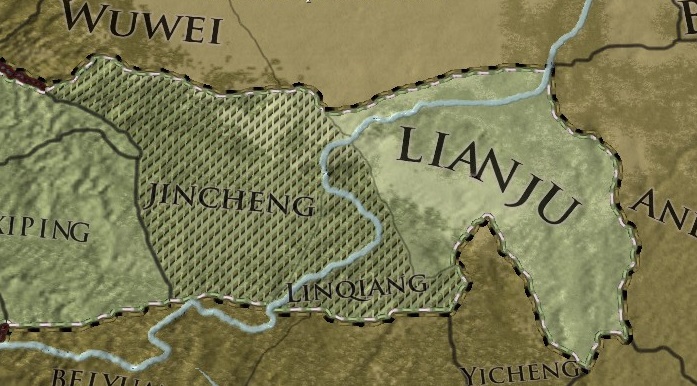
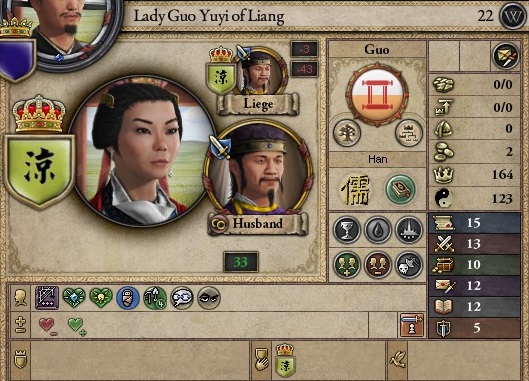
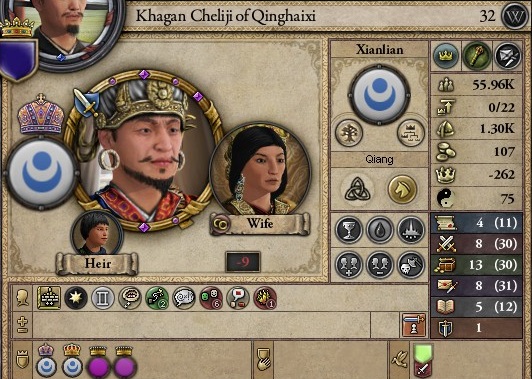
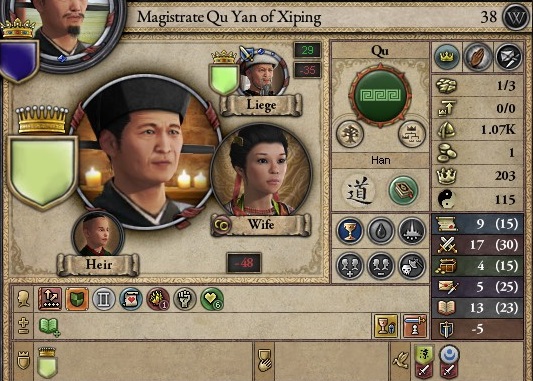
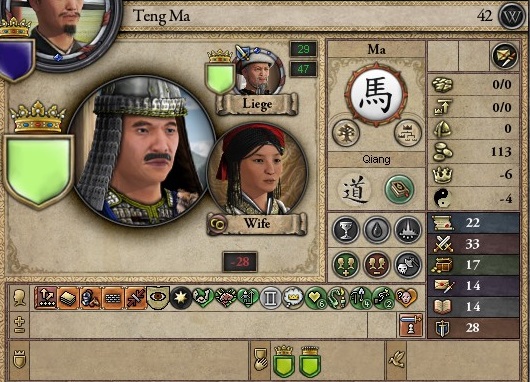

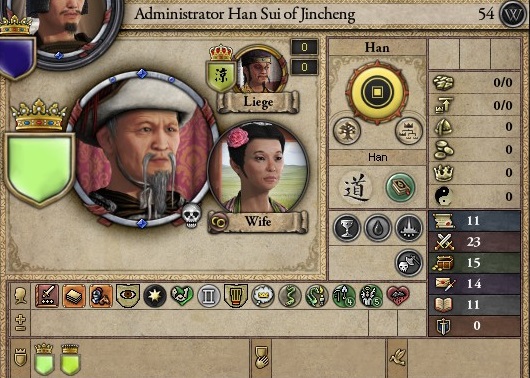
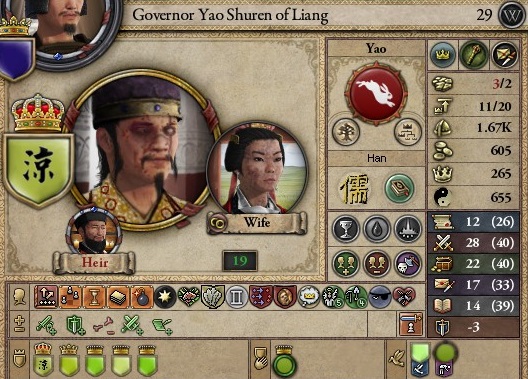
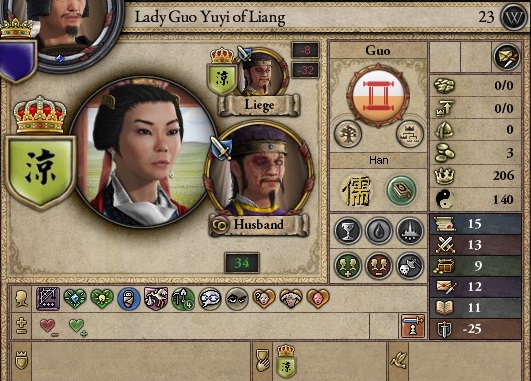
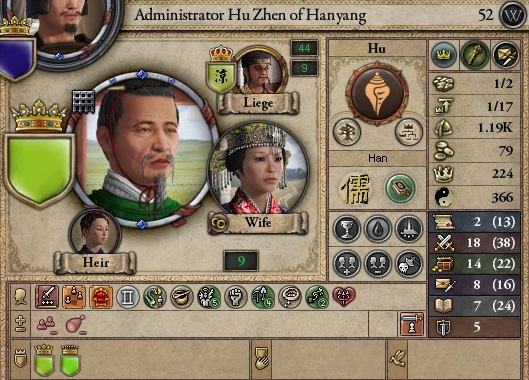
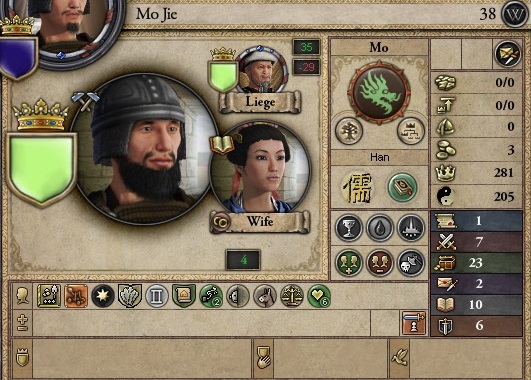
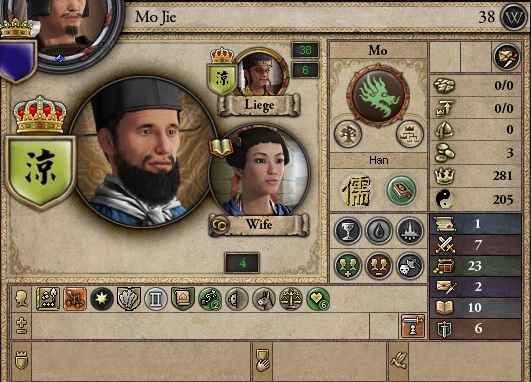


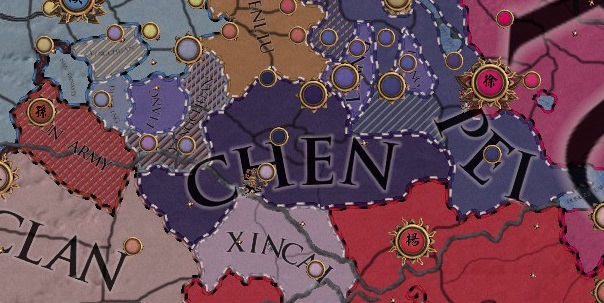
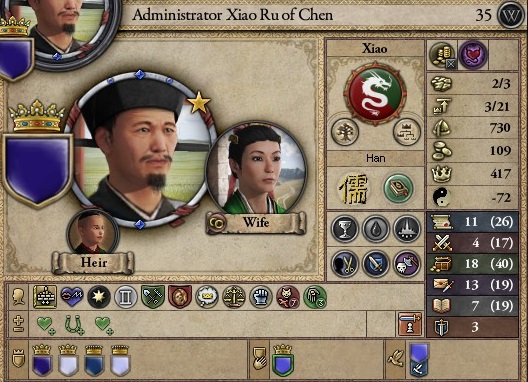
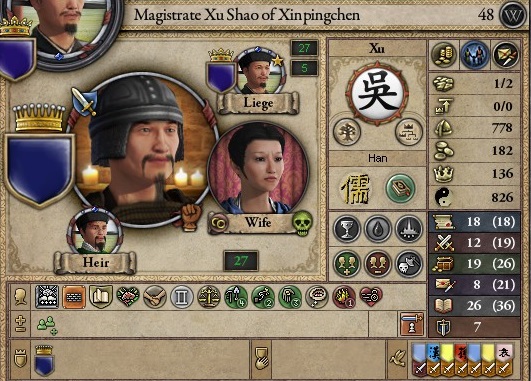
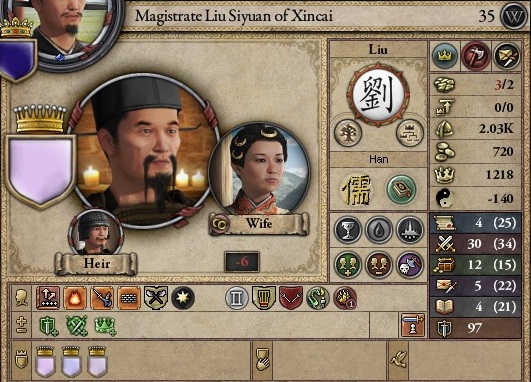
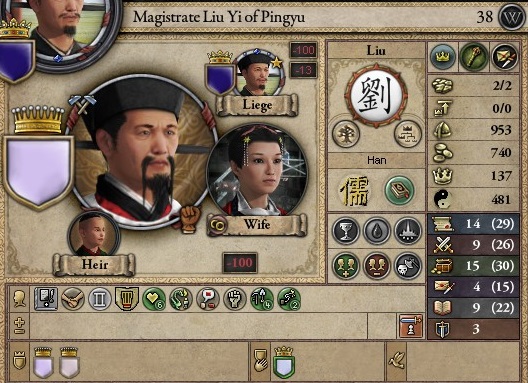
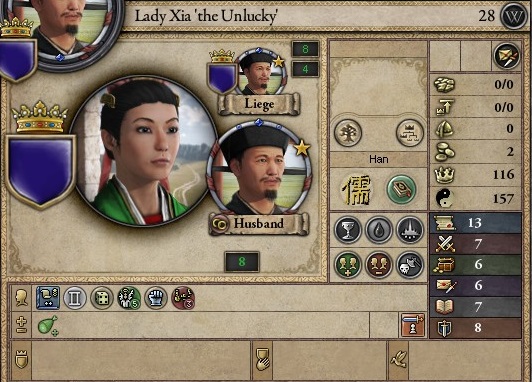
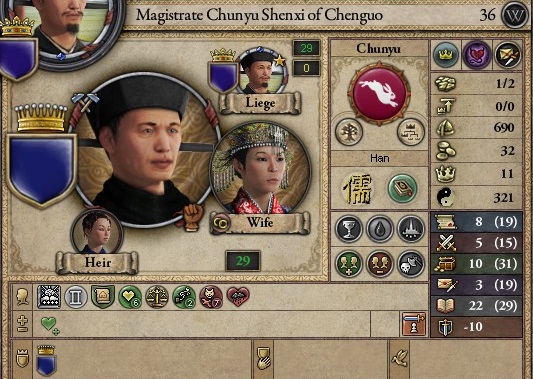
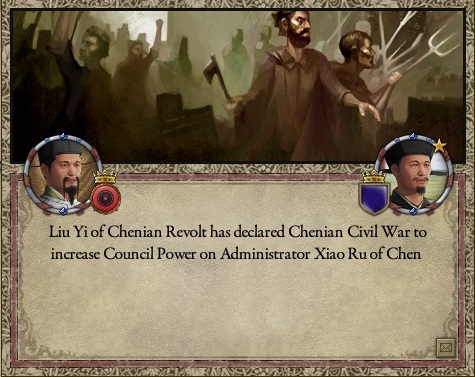
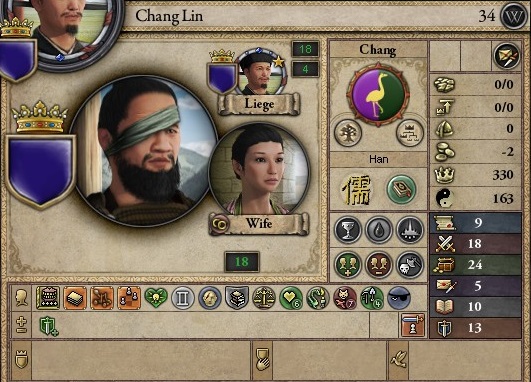
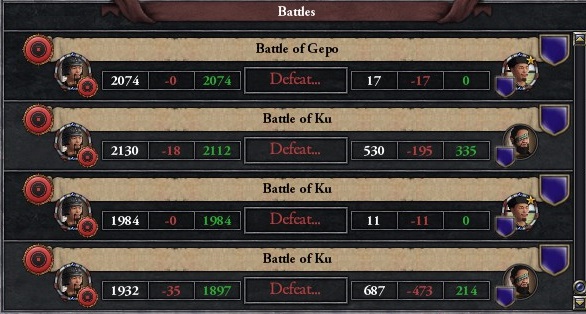
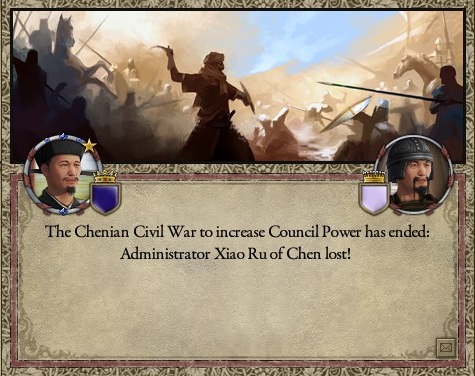


















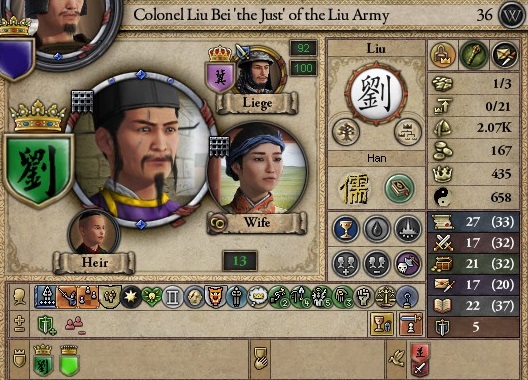















.jpg)





















